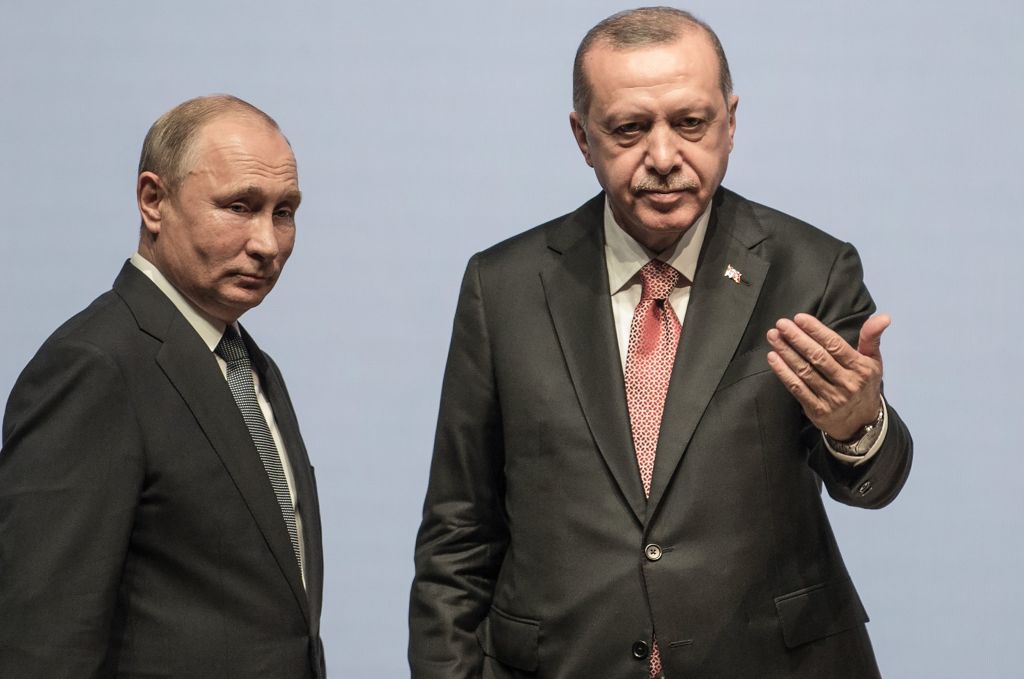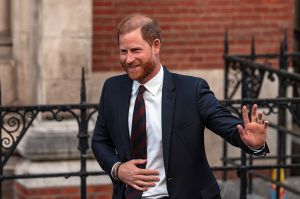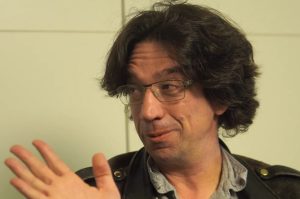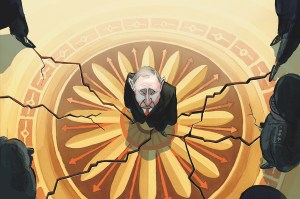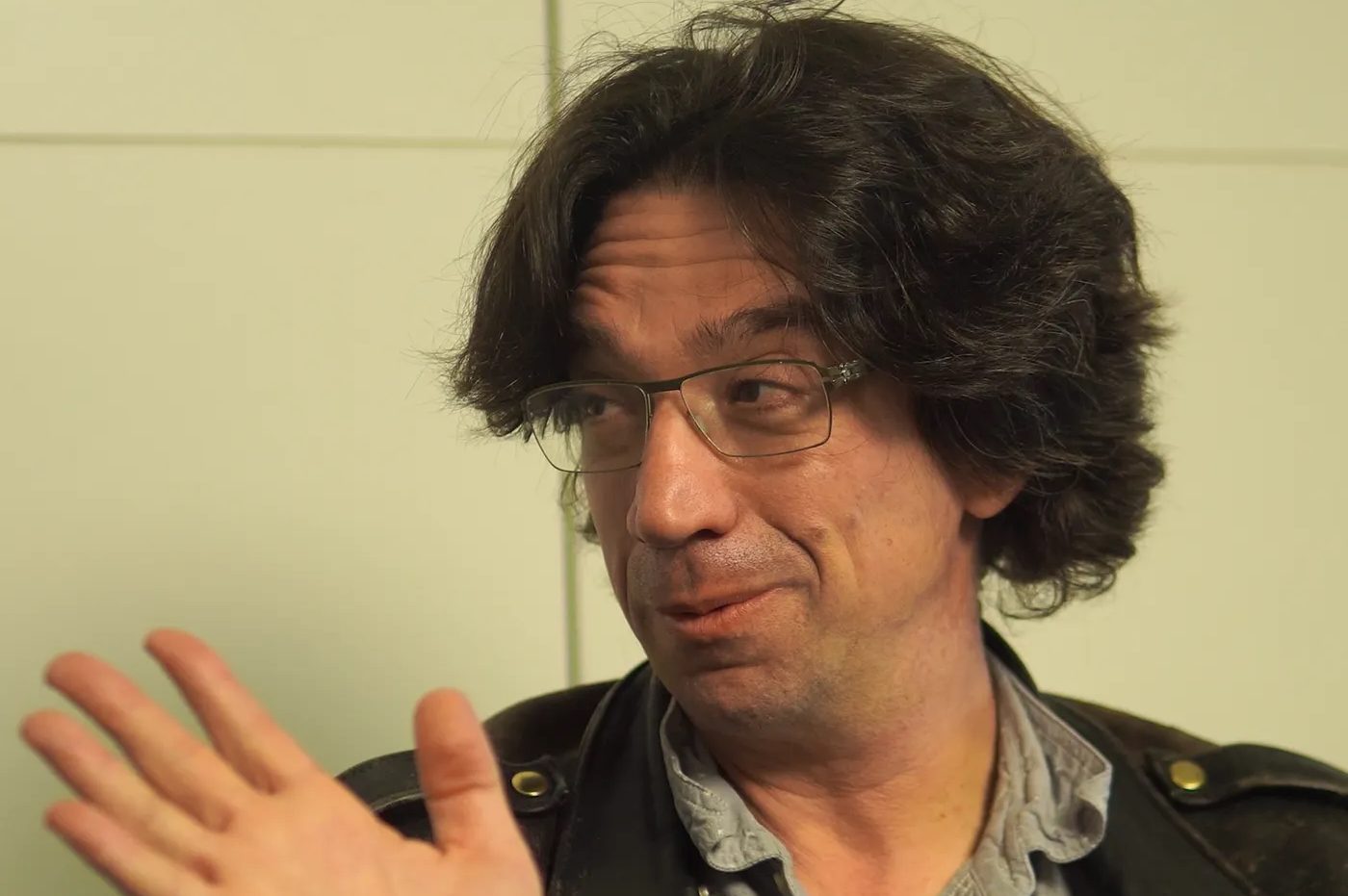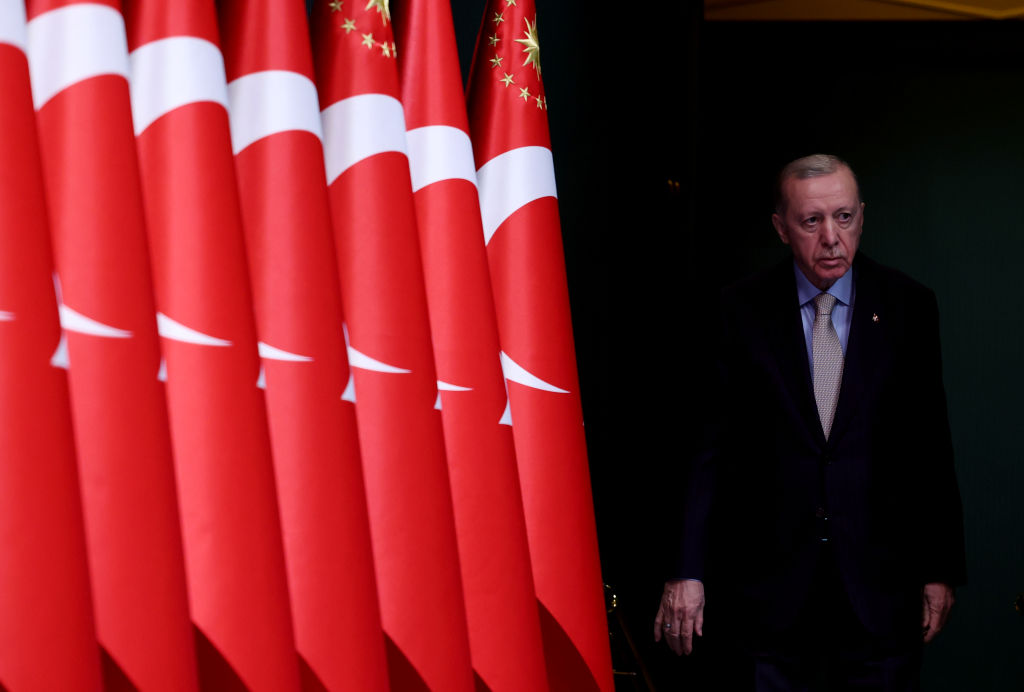Turkey’s twentieth-century experience was very different from that of most European countries. During World War One, the late Ottoman Empire joined forces with Germany, a decision the sultans not only came to regret but that ultimately led to the fall of their monarchy. The Turkish War of Independence followed, touched off by Mustafa Kemal Atatürk, who transformed the Ottoman Empire into the secular Turkish Republic that still exists today.
During World War Two, Turkey remained neutral, because of its previous experiences with joining a German military campaign, but also because it was in dire economic shape. In 1952, Turkey joined NATO, and has since been an ally of the West. However, Turkey’s West-leaning integration was interrupted by Recep Tayyip Erdoğan, whose ongoing reign since 2003 has turned Turkey into a more ambiguous geopolitical player.
Over the last two decades, Turkey has become increasingly authoritarian, and appears to be trying to reconnect with its religious roots. The government is increasing the price of alcohol, affording little recourse to the rights of women, and has retransformed the famous Hagia Sophia from a museum into a mosque. Turkey has also made territorial and quasi-territorial claims — to areas of the Mediterranean Sea and over the so-called Turkish Republic of Northern Cyprus. Its botched intervention in Syria further reduced its credibility with its NATO allies.
That said, Turkey and Russia are not friends. In 2015, Turkey’s military downed a Russian warplane over the Turkey-Syria border. Moscow reacted by placing sanctions on Turkey, banning Russians from traveling to Turkish holiday resorts, and closing down Turkish companies and factories on Russian territory. Erdoğan later defused the conflict by purchasing a Russian S-400 anti-aircraft missile system, which in turn angered the West.
Meanwhile, with over $4 billion in investments in Ukraine by more than 700 Turkish companies, and with a free-trade agreement signed with Kiev just last month, Ankara knows that Russia’s military invasion is bad for business. Ukraine is a place of strategic investment for Turkish elites, including the extended family of Erdoğan himself.
In the current war, Turkey has condemned aggressive warfare by Moscow while simultaneously opting out of sanctioning Putin’s regime. This underscores that Ankara has yet to decide where exactly it stands, or rather where it can make the most money in the coming years.
Some recent cosmetic changes indicate that the government is pursuing a policy that looks East, not West. In 2018, the Turkish government decided to stay permanently on summer time (UTC +3), which put it two hours away from central Europe in winter and in the same time zone as Mecca and Medina. In recent years, Ankara has also insisted on using the name “Türkiye” instead of “Turkey.”
That said, cosmetic changes won’t help Erdoğan navigate the Ukraine crisis.
One of these choices is related to the gas pipelines TurkStream Line 1 and TurkStream Line 2. The pipelines have been designed to bypass Ukraine, and have enriched Turkey as it cashes in on royalties from deliveries to Europe. Sanctioning the pipelines would have meant cutting ties with Russia and casting itself into even more economic hardship. Refraining from sanctions would have meant walking even further away from the West. However, the Trans-Adriatric Pipeline (TAP), which connects Azerbaijan’s gas to Europe — a connection Europe is likely to rely on more in the coming years — also passes trough Turkey. Will Turkey be Europe’s savior or its headache? Currently, it manages to be both.
All of these important decisions come just over a year out from Turkey’s general election, already seen as crucial for the country’s fate. The current government is responsible for record-high inflation, which is suffocating Turkey’s economy, making it more reliant on tourism than ever before. Erdoğan’s main opposition, the social-democrat CHP, is seen as the more Western-oriented alternative, opposed to Erdoğan’s authoritarian grip on his country’s institutions. For the last two years, the governing majority has portrayed Europe as arrogant, even going so far as to call for a boycott of French products in the wake of the territorial dispute with Greece, in which France strongly supported Athens.
Whatever decisions Erdoğan makes in the coming months will not stand on any overarching principle against expansionist warfare or in favor of the regime in Moscow. They will rather stand on a calculation of how to benefit from the business of both East and West, all while winning reelection in June 2023.



